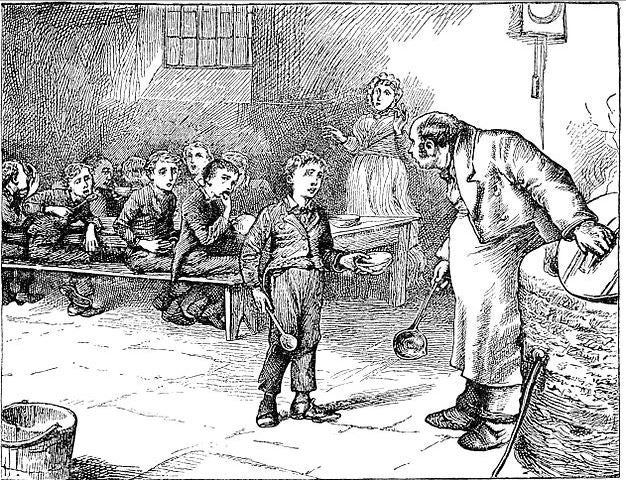Samuel Berlinski and Florencia López-Boo
What do Harry Potter and Oliver Twist have in common? They’re both orphans, yes. But also —centuries apart— they embody the concept of childhood in the respective times and societies of the authors who created them. The idea of what it means to be a child has evolved throughout history to reach its present version, in which children have their own rights and the government has the duty to guarantee them.
The notion of children’s rights is relatively new but widely accepted, and recognizes them as individuals with legal rights who are equal before any law or policy. Their identity and interests are separate from their parents’ and worth protecting. They have the right to receive special care, including access to food, education, health, family life, recreation, and protection from abuse.
If children flourish in their early years they are more likely to become productive citizens. Thus, the role of the government to guarantee child welfare is a long-term investment in society, supplementing —or sometimes compensating for— the actions of parents. In Latin America, for example, governments have implemented social programs such as paying a monthly stipend per child to low-income families, offering free meals at public schools or free vaccination campaigns.
The concept of childhood has varied greatly through time and across cultures. The current meaning of the term “child” started to develop sometime between the 17th and 20th centuries, according to Philippe Ariès’ influential book Centuries of Childhood (1962). In modern society, it is generally accepted that childhood is a stage of life with certain traits that are different from those of infancy and adulthood.
Harry Potter’s first years were full of suffering and deprivation. J.K. Rowling’s character lived with the family of his aunt (his legal guardian) and was treated like a second-class child. But when he turned 11 he was sent to school— in his case, for wizards. The role of compulsory schooling in his life fits the modern idea of the duty of state institutions regarding the care of children: it provided an education, food and shelter, the possibility to compete in sports, make friends and grow up to be a healthy adult with the same opportunities as children who were raised by their own parents, rich or poor.
This idea of the entitlements that come associated with childhood did not always exist. In medieval society, children at the age of 7 acted —and were treated— as smaller versions of adults. They had to work and were sexually exploited at a very early age.
For most of human history, a significant proportion of children did not survive to reach adulthood. According to Ariès, this fostered emotional indifference from parents. The modern status of the child is related to lower infant mortality rates, changes in the educational system and the appearance of a separate isolated family unit.
In contrast to the present notion of children’s rights, social programs have historically taken the needs approach, where children are the beneficiaries of policies and governments act out of patronage and charity. This notion started in Elizabethan England in 1601 when, for the first time, poor children were made the responsibility of the parish through the Poor Relief Act, an important precedent of child protection.
The emphasis on the importance of education that was dominant in Harry Potter became widespread in the 18th century, thanks to the Enlightenment view that children needed to be educated to become good citizens. The development of schooling was essential to define a new idea of childhood, as school provided a transition between infancy and adult life (Clarke, 2004).
However, in the 18th century industrialization intensified the exploitation of children. The new factories and mines, hungry for workers, led to a dramatic increase in child labor, which included dangerous tasks and unhealthy work conditions. This gave way to a relatively new notion in the 19th century: the child as the object of pity or philanthropy.
Literature contributed to raise awareness of the situation of children at the time. Charles Dickens’ Oliver Twist described the neglect and poverty experienced by orphans under the care of official institutions, in this case the parish workhouse, before the young boy escaped to the crime-ridden streets of 1830´s London.
A growing number of reformers worked to enact legislation to control the alarming child labor practices. Even in the laissez-faire atmosphere of Victorian Britain, childhood was considered a period of life that needed protection and the state was obliged to intervene on behalf of children (Lowe, 2004). This was probably the first time the state accepted ultimate responsibility for protecting the well-being of children.
By the end of the 19th century, the idea of children as the focus of policymaking had firmly taken root, paving the way for the 20th century to become “the century of the child.” A clear view emerged that children’s welfare is not merely a family responsibility: it is increasingly viewed as the responsibility of the state, which intervenes in their education, health and upbringing to improve national well-being by developing its future citizens.
This paradigm shift is reflected in some landmarks in children rights: the Geneva Declaration on the Rights of the Child (1924), the creation of UNICEF (1946), the Declaration of the Rights of the Child (1959) and the Convention on the Rights of the Child, signed in 1989 by 140 states.
Some of these issues are discussed in the 2015 edition of the IDB’s flagship series, Development in the Americas, entitled The Early Years: Child Well-Being and the Role of Public Policy. Click here to receive updates on this upcoming book and a free PDF upon publication.


Leave a Reply